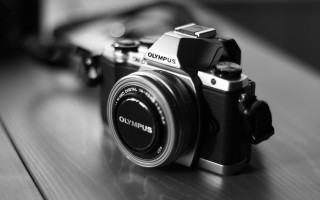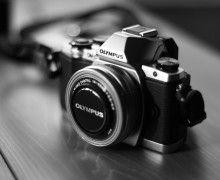Camera Lenses And Your Needs: Beginner Photography Lenses
There is a constant talk about cameras and lenses and the necessary budget you need to handle in order to have decent equipment. Now, regardless of whether you go for Canon or Nikon or Sony (or etc.) in your camera-brand hunt, what you need to remember is that if you are serious about your hobby you will have to invest a lot of money in it eventually. This article will help you identify the best lens for certain situations and how to understand your photo-needs better.
Photography Lenses
Understanding Your Hobby
This might seem a bit odd, however there are many photographers out there who have no idea what they like to photograph, or why do they like this particular hobby at all. Your job at this point is to find the center of your hobby and this means identifying why you got into this in the first place, and what drove you to continue with it so far. You may not think this has a lot to do with picking out the right lens, however, bear with me and you will see it’s not at all in vain. The whole point of it all is that different lenses are for different purposes, so if you got into photography just for the sake of taking some shots here and there you should only go for a really good all-around lens, and leave any specialized lenses for when you’re going to be more certain of what you like. It’s just like in business – if you want to be really good at it, you must first identify a niche – you can’t be overall good, not anymore at least – you have learn to be as good as you can in your own sector.
What Are Your Options
Again, if you are at the beginning, the most natural way to go is figure out what you like shooting. Do you like shooting pictures of people, or would you rather go for images that involve mountains or lakesides or other wondrous natural phenomena? For example, most of the times I enjoy taking nature shots like landscapes, waterscapes or at most wildlife. But some other times I take my toll at portraiture – not necessarily because I like portraits but because I like people and I find it both a pleasure and a challenge to capture their natural state in photographs. If you are a fan of portrait photography, you should know that this is probably the best way to go (and the most rewarding, on a psychological level) but it depends on what you like to do in the end.
Choosing The Right Lens
Assuming you have a pretty good idea in regards to what kind of photography you are most interested in, we can finally discuss about the right lens for you (or lenses for that matter). And here it goes:
The Lenses and Beginner photography
If you’ve just started out then what you need is a pretty good all-around lens so you will figure out what are your favorite subjects in photography. Most of us get a grasp of what we really like shooting at after we spend a lot of time shooting whatever we see through our visor. And that’s the best way to get at it actually because it gives you the opportunity to go through almost all your options.
I used to travel a lot when I first got my camera, and that gave me the opportunity to learn how much I enjoy combining travel with photography (two of my greatest hobbies). Back then I had only a 18-55 lens and I took some rather decent shots (there are some of which I’m still proud of nowadays). A better kit lens would have helped me a lot, and this is why I recommend something along the lines of a 16-85mm lens.
Nikon has a wonderful 16-85 F/3.5-5.6 VR lens that allows you to go a bit wider with the extra 2mm, and a lot longer with the extra 30mm. Canon offers a similar lens – the EF-S 17-85mm f/4-5.6 IS USM but it’s a bit darker, at a bit less wider. Now, if you’re not going to go for the most expensive kit lens you can buy, or you’re just not willing to spend around $700 on your kit lens, especially one that needs pairing with a zoom-lens you could consider something like a 18-200 VR (or IS) lens.
These allow you the opportunity to take wide shots and zoomed shots with one single turn of the ring. The image quality is quite decent, and for someone who is into learning a lot of new stuff, these types of lenses have a lot to offer.
Photography Lenses
Another important set of lenses for beginners are zoom lenses. To be frank, I sold mine after about one year and a half, after using it in less than 700 shots. My particular zoom lens was an older version of the 55-200mm lens, which in my opinion was too slow and too dark for what I needed it to do.
Others however found it quite useful and this proves that it is a matter of taste, expectation and need. However, it gave me the opportunity to understand that I need zoom lenses that can offer me a very low aperture (like F/2.8) and offer an outstanding image quality. I wanted to use my zoom lens for bird shooting and nothing else – you can imagine where a cheap lens can fail you at this point.
Remember, specialized lenses should only be bought if you really know what you’re doing and what you like because otherwise you’ll end up spending a lot of money on a lens you’re just not using.
Photography Lenses
Prime lenses, or fixed-focal lenses are for those interested in tackling with portraits or macro photography. Not necessarily those two categories, but if you are a beginner, a prime is most likely to fall in your hands in one of these two situations. If you are still in the tryout period, you will find that owning a prime is at least not expensive.
Compared to many other lenses, having a 50mm f/1.8 lens is simply cheap and it gives you quite some flexibility – while you cannot really take a shot at real macro photography you are still able to tackle at it and explore whether it’s something you would like or not. The fast aperture gives you the opportunity to understand what bokeh is and how it can make your images truly interesting. In addition, it’s one of the best lenses to start with in your portraiture career (if that’s where you’re headed). Amusing or not, for the first few years after I took up photography I just didn’t find a use for my 50mm F/1.8 – mostly because I didn’t use to take a lot of portraits back then but that changed too.
Later in the years I found that another wonderful portrait lens was the 35mm F/1.8 and it had an even nicer bokeh not to mention that it provided an outstanding image quality. However, I already knew I had a purpose for it, therefore it was a useful acquisition. It would have also been useful if I had needed it to shoot interiors where lack of light was an issue (as you can see, it has a fast aperture, allowing you to take low-ISO shots in low light).
Photography Lenses
Now that I have gone through some of the most important points, I will sum up the most important steps you need to go through when building your own to-buy list:
- What kind of photography are you interested in?
- How much are you willing to spend on your lenses?
- How serious are you about your hobby?
This is fairly important, because if you plan on sticking to this hobby or turning it into something serious maybe a larger investment is not such a bad idea. You just have to invest in the right type of equipment.






